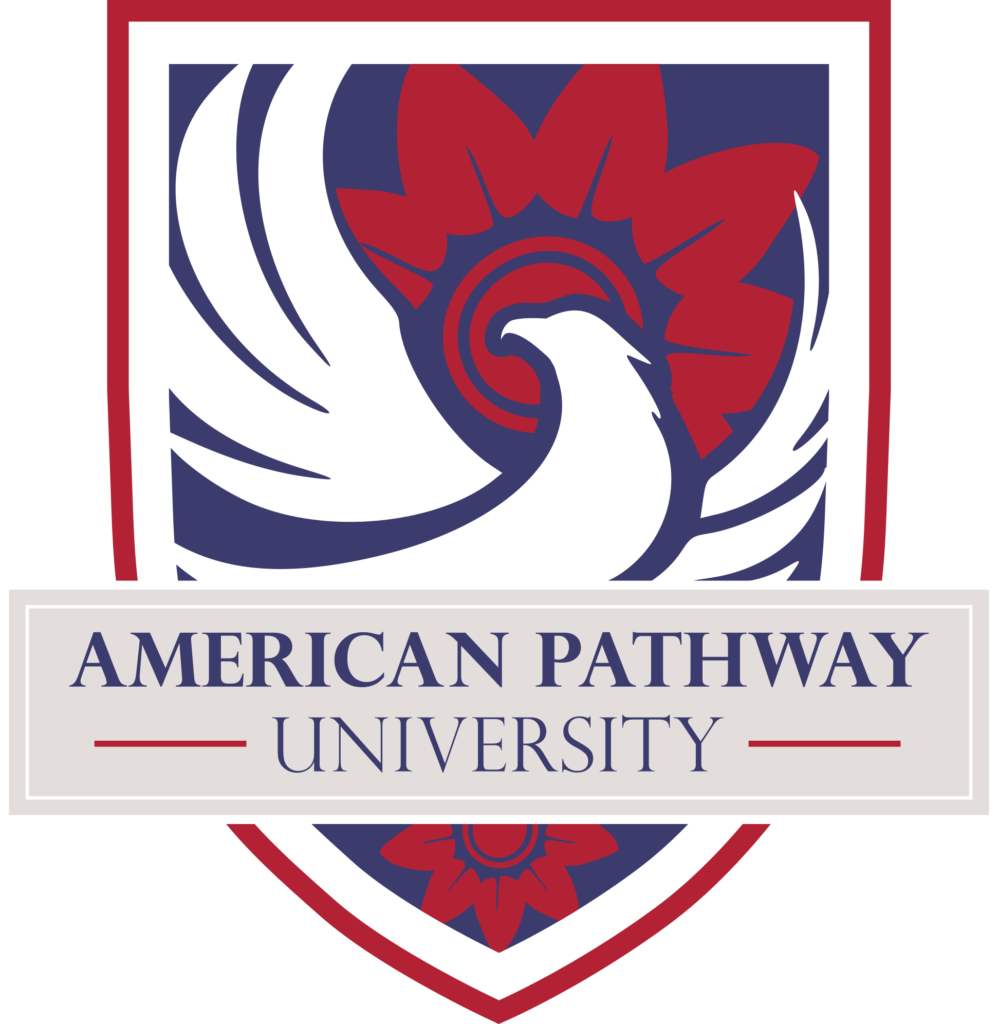
UDC BACHELOR’S DEGREE
Thanks to the agreement between the Universidad del Conde (UDC) and the American Pathway University, international students can access one of the degrees we offer in Mexico.
Universidad del Conde is an educational institution located in the city of Xalapa in the state of Veracruz, Mexico that offers undergraduate and graduate studies through an innovative and accessible education system.

UDC BACHELOR’S DEGREE
Thanks to the agreement between the Universidad del Conde (UDC) and the American Pathway University, international students can access one of the degrees we offer in Mexico.
Universidad del Conde is an educational institution located in the city of Xalapa in the state of Veracruz, Mexico that offers undergraduate and graduate studies through an innovative and accessible education system.
KNOW THE BACHELOR’S DEGREES WE HAVE FOR YOU:
Business Administration
The curriculum of the Bachelor’s Degree in Business Administration is updated according to the needs of the labor market and has a theoretical-practical approach, with the Recognition of Official Validity of Studies by the SEP (RVOE).
CURRICULUM
1st Quadrimester
• Research Methodology
• Introduction to Administration
• Financial Accounting
• Basic Math
• Introduction to Law
• Administrative Process
2nd Quadrimester
• Financial Accounting
• Applied Mathematics
• Administrative Process II
• Costs
• Statistics
• Commercial Law
3rd Quadrimester
• Socioeconomic Problems of Mexico
• Ecology and Environmental impact
• Strategic Planning
• Operations Research
• Labor Law and Social Security
• Introduction to Economics
4th Quadrimester
• Human Behavior in Organizations
• Financial Management
• Budgets
• Personnel Management I
• Macroeconomics
• Management Control
5th Quadrimester
• Market Research
• Microeconomics
• Production Management
• Purchasing Management
• Personnel Administration II
6th Quadrimester
• Sales Management
• System Analysis and Design
• Marketing
• Small and Medium-sized Enterprise Management
• International Trade
7th Quadrimester
• Quality in the Company
• Thesis Seminar I
• Formulation of Investment Projects
• Advertising
• Administrative Audit I
8th Quadrimester
• Decision-Making
• Business Simulation
• Evaluation of Investment Projects
• Administrative Audit II
• Thesis Seminar II
1st Quadrimester
• Research Methodology
• Introduction to Administration
• Financial Accounting
• Basic Math
• Introduction to Law
• Administrative Process
2nd Quadrimester
• Financial Accounting
• Applied Mathematics
• Administrative Process II
• Costs
• Statistics
• Commercial Law
3rd Quadrimester
• Socioeconomic Problems of Mexico
• Ecology and Environmental impact
• Strategic Planning
• Operations Research
• Labor Law and Social Security
• Introduction to Economics
4th Quadrimester
• Human Behavior in Organizations
• Financial Management
• Budgets
• Personnel Management I
• Macroeconomics
• Management Control
5th Quadrimester
• Market Research
• Microeconomics
• Production Management
• Purchasing Management
• Personnel Administration II
6th Quadrimester
• Sales Management
• System Analysis and Design
• Marketing
• Small and medium-Sized Enterprise Management
• International Trade
7th Quadrimester
• Quality in the Company
• Thesis Seminar I
• Formulation of Investment Projects
• Advertising
• Administrative Audit I
8th Quadrimester
• Decision-Making
• Business Simulation
• Evaluation of Investment Projects
• Administrative Audit II
• Thesis Seminar II
LAW
The Universidad del Conde offers the degree in Law as an academic program aimed at updating reforms and laws and their effective application in all legal areas. The person who wishes to study this degree must be interested in knowing the aspects related to the process of application and interpretation of the law. Maintain an attitude of permanent updating and continuous improvement in scientific knowledge in general.
LAW
The Universidad del Conde offers the degree in Law as an academic program aimed at updating reforms and laws and their effective application in all legal areas. The person who wishes to study this degree must be interested in knowing the aspects related to the process of application and interpretation of the law. Maintain an attitude of permanent updating and continuous improvement in scientific knowledge in general.
CURRICULUM
1st Quadrimester
• Introduction to the Study of Law
• History of Law
• Roman Law
• Legal Research Methodology
• Legal Sociology
• Civil Law I
2nd Quadrimester
• English II
• General Theory of Process
• Constitutional Law
• Civil Law II
• Criminal Law I
• Theory of the State
• General Theory of Law
3rd Quadrimester
• Economics
• Criminal Law II
• Civil Law III
• Labour Law
• Commercial Law
• Civil Procedural Law
4th Quadrimester
• Civil Law IV
• Criminal Law III
• Administrative Law I
• Economic Law
• Criminal Procedural Law
• Commercial Procedural Law
5th Quadrimester
• Philosophy of Law
• Administrative Law II
• Labour Procedural Law
• Public International Law
• Tax Law
6th Quadrimester
• Private International Law
• Agrarian Law
• Tax Procedural Law
• Social Security Law
• Ecological Law
7th Quadrimester
• Forensics
• Agrarian Procedural Law
• Protection
• Thesis Seminar I
8th Quadrimester
• Thesis Seminar II
• Procedural Law of the Amparo Trial
• Human Rights
• Prison Law
1st Quadrimester1st Semester
• Introduction to the Study of Law
• History of Law
• Roman Law
• Legal Research Methodology
• Legal Sociology
• Civil Law I
2nd Quadrimester
• English II
• General Theory of Process
• Constitutional Law
• Civil Law II
• Criminal Law I
• Theory of the State
• General Theory of Law
3rd Quadrimester
• Economics
• Criminal Law II
• Civil Law III
• Labour Law
• Commercial Law
• Civil Procedural Law
4th Quadrimester
• Civil Law IV
• Criminal Law III
• Administrative Law I
• Economic Law
• Criminal Procedural Law
• Commercial Procedural Law
5th Quadrimester
• Philosophy of Law
• Administrative Law II
• Labour Procedural Law
• Public International Law
• Tax Law
6th Quadrimester
• Private International Law
• Agrarian Law
• Tax Procedural Law
• Social Security Law
• Ecological Law
7th Quadrimester
• Forensics
• Agrarian Procedural Law
• Protection
• Thesis Seminar I
8th Quadrimester
• Thesis Seminar II
• Procedural Law of the Amparo Trial
• Human Rights
• Prison Law
Public Accounting
The curriculum of the Bachelor’s Degree in Public Accounting is updated according to the needs of the labor market and has a theoretical-practical approach, with the Recognition of Official Validity of Studies by the SEP (RVOE).
CURRICULUM
1st Quadrimester
• Accounting I
• Introduction to Administration
• Mathematics I
• Microeconomics
• Research Methodology
• Introduction to the Study of Law
2nd Quadrimester
• Accounting II
• Administration I
• Mathematics II
• Macroeconomics
• Commercial Law I
• Constitutional and Administrative Law
3rd Quadrimester
• Accounting III
• Administration II
• Financial Mathematics
• Costs I
• Statistics
• Commercial Law II
4th Quadrimester
• Accounting IV
• Administration III
• Costs II
• Labour Law and Social Security
• Socioeconomic Problems in Mexico
• Budgets
5th Quadrimester
• Computer Science and Accounting
• Accounting V
• Accounting Organization
• Decisional Models
• Costs III
• Tax Law
6th Quadrimester
• Accounting Information Systems
• Audit
• Taxes I
• Finance I
• International Trade
7th Quadrimester
• Specialized Accounting
• Thesis Seminar I
• Internal Control
• Finance II
• Taxes II
8th Quadrimester
• Audit Workshop
• International Accounting
• Analysis and Interpretation of Financial Statements
• Administrative Audit
• Thesis Seminar II
1st Quadrimester
• Accounting I
• Introduction to Administration
• Mathematics I
• Microeconomics
• Research Methodology
• Introduction to the Study of Law
2nd Quadrimester
• Accounting II
• Administration I
• Mathematics II
• Macroeconomics
• Commercial Law I
• Constitutional and Administrative Law
3rd Quadrimester
• Accounting III
• Administration II
• Financial Mathematics
• Costs I
• Statistics
• Commercial Law II
4th Quadrimester
• Accounting IV
• Administration III
• Costs II
• Labour Law and Social Security
• Socioeconomic Problems in Mexico
• Budgets
5th Quadrimester
• Computer Science and Accounting
• Accounting V
• Accounting Organization
• Decisional Models
• Costs III
• Tax Law
6th Quadrimester
• Accounting Information Systems
• Audit
• Taxes I
• Finance I
• International Trade
7th Quadrimester
• Specialized Accounting
• Thesis Seminar I
• Internal Control
• Finance II
• Taxes II
8th Quadrimester
• Audit Workshop
• International Accounting
• Analysis and Interpretation of Financial Statements
• Administrative Audit
• Thesis Seminar II
Pedagogy
The Bachelor’s Degree in Pedagogy is oriented towards research in Education, providing the student with complete theoretical-practical preparation to understand and solve current educational challenges with a humanistic and scientific foundation, having the ability to carry out planning, training, guidance and educational evaluation in all levels of education.
Pedagogy
The Bachelor’s Degree in Pedagogy is oriented towards research in Education, providing the student with complete theoretical-practical preparation to understand and solve current educational challenges with a humanistic and scientific foundation, having the ability to carry out planning, training, guidance and educational evaluation in all levels of education.
CURRICULUM
1st Quadrimester
• Reading and Writing Workshop
• English I
• Computation
• Epistemology
• Theoretical Bases of Pedagogy
• History of Education
• Virtual Learning and Teaching
2nd Quadrimester
• English II
• Sociology of Education
• Contemporary Pedagogical Theories
• Theories of Thought and Language
• Statistics and Probability
• Multimodal Education
• Didactics
3rd Quadrimester
• School Administration I
• Educational Axiology
• Evolutionary and Differential Psychology I
• Education Policies
• Computer Science I
• Curriculum Theory
• Didactic Planning
4th Quadrimester
• School Administration II
• Psychopedagogyn
• Evolutionary and Differential Psychology II
• Computer Science II
• Curriculum Design
• Didactics for Upper Secondary Education
• Educational Research
5th Quadrimester
• Educational Planning
• Educational Legislation
• Environmental Education
• Human Resource Management
• Instructional Design
• Didactics for Higher Education
• Research Methods and Techniques in Education
6th Quadrimester
•Organization and Management of Educational Institutions
• Competency-based Education
• Internship in School Administration
• Educational Guidance I
• Educational Technology I
• Curriculum Evaluation
• Educational Quality
7th Quadrimester
• Educational Evaluation
• Communication and Human rRelations
• Educational Guidance II
• Educational Technology II
• Continuing Education
• Education for the Use of Free Time
• Thesis Seminar I
8th Quadrimester
• Mexico and its Educational Projects
• Marketing in Education
• Educational Guidance Practices
• Professional Ethics
• Teaching Internships
• Thesis Seminar II
1st Quadrimester
• Reading and Writing Workshop
• English I
• Computation
• Epistemology
• Theoretical Bases of Pedagogy
• History of Education
• Virtual Learning and Teaching
2nd Quadrimester
• English II
• Sociology of Education
• Contemporary Pedagogical Theories
• Theories of Thought and Language
• Statistics and Probability
• Multimodal Education
• Didactics
3rd Quadrimester
• School Administration I
• Educational Axiology
• Evolutionary and Differential Psychology I
• Education Policies
• Computer Science I
• Curriculum Theory
• Didactic Planning
4th Quadrimester
• School Administration II
• Psychopedagogyn
• Evolutionary and Differential Psychology II
• Computer Science II
• Curriculum Design
• Didactics for Upper Secondary Education
• Educational Research
5th Quadrimester
• Educational Planning
• Educational Legislation
• Environmental Education
• Human Resource Management
• Instructional Design
• Didactics for Higher Education
• Research Methods and Techniques in Education
6th Quadrimester
• Organization and Management of Educational Institutions
• Competency-based Education
• Internship in School Administration
• Educational Guidance I
• Educational Technology I
• Curriculum Evaluation
• Educational Quality
7th Quadrimester
• Educational Evaluation
• Communication and Human rRelations
• Educational Guidance II
• Educational Technology II
• Continuing Education
• Education for the Use of Free Time
• Thesis Seminar I
8th Quadrimester
• Mexico and its Educational Projects
• Marketing in Education
• Educational Guidance Practices
• Professional Ethics
• Teaching Internships
• Thesis Seminar II
Counseling and Educator in Antisocial Behavior Prevention Strategies
The Higher University Technician* Study Program in Guidance and Educator in Antisocial Behavior Prevention Strategies is innovative and unique at the national level, whose main objective is to provide society with professionals capable of detecting, addressing and preventing phenomena and antisocial behaviors that threaten children, young people and/or adults, as well as their families, their environment and society in general.
*In Mexico we have the “Higher University Technician” as the first training cycle to deliver a degree and professional license. Its duration is 6 semesters.
CURRICULUM
1st Quadrimester
• General Knowledge of Drug Addiction and Antisocial Behavior
• Basic Concepts of Addictions
• Human Rights
• Epidemiology
• Theory of Social Learning
• Professional and Ethical Standards in Counseling
• Primary and Timely Detection
2nd Quadrimester
• Fundamental Competencies and Concepts in Counseling and Accompaniment
• Development, Competencies and Person of the Director
• Development of the Individual, Group and Family Counseling Plan
• Diagnosis and Timely Intervention, Theory and Models Related to the Motivation to Change
• Intervention Based on Motivational Interviewing
• Intervention Based on the Application of the TRC
3rd Quadrimester
• Basic Concepts of Psychology, Psychological Theories and Currents, Basic Concepts of Psychiatry.
• Psychological Theories and Currents.
• Theories of Personality Development.
• Personality Disorders: Dual Pathology.
• Logotherapy Applied in Counseling and Accompaniment
4th Quadrimester
• Social Psychopathologies
• Adolescence and Youth at Risk: the Seductive Power of Gangs, Drug Cartels and Organized Crime.
• Social Psychopathologies: Gender and Family Violence.
• Social Psychopathologies: Philias and Human Sexuality.
• Intervention in Social Psychopathology.
5th Quadrimester
• Development of Residential and Outpatient Treatment Programs
• Treatment Programs for Specific Populations
• Induction to Treatment
• Management, Concept and Method of Therapeutic Community
• Official Rules
• Relapse Prevention
• Evaluation of Results
• Post-treatment Follow-up Program
• Social Reintegration Plan
6th Quadrimester
• Development and Execution of Preventive Programs
• Dissertation Workshop
• Preparation of Community Diagnosis
• Networking
• Design of Preventive Programs
1st Quadrimester
• General Knowledge of Drug Addiction and Antisocial Behavior
• Basic Concepts of Addictions
• Human Rights
• Epidemiology
• Theory of Social Learning
• Professional and Ethical Standards in Counseling
• Primary and Timely Detection
2nd Quadrimester
• Fundamental Competencies and Concepts in Counseling and Accompaniment
• Development, Competencies and Person of the Director
• Development of the Individual, Group and Family Counseling Plan
• Diagnosis and Timely Intervention, Theory and Models Related to the Motivation to Change
• Intervention Based on Motivational Interviewing
• Intervention Based on the Application of the TRC
3rd Quadrimester
• Basic Concepts of Psychology, Psychological Theories and Currents, Basic Concepts of Psychiatry.
• Psychological Theories and Currents.
• Theories of Personality Development.
• Personality Disorders: Dual Pathology.
• Logotherapy Applied in Counseling and Accompaniment
4th Quadrimester
• Social Psychopathologies
• Adolescence and Youth at Risk: the Seductive Power of Gangs, Drug Cartels and Organized Crime.
• Social Psychopathologies: Gender and Family Violence.
• Social Psychopathologies: Philias and Human Sexuality.
• Intervention in Social Psychopathology.
5th Quadrimester
• Development of Residential and Outpatient Treatment Programs
• Treatment Programs for Specific Populations
• Induction to Treatment
• Management, Concept and Method of Therapeutic Community
• Official Rules
• Relapse Prevention
• Evaluation of Results
• Post-treatment Follow-up Program
• Social Reintegration Plan
6th Quadrimester
• Development and Execution of Preventive Programs
• Dissertation Workshop
• Preparation of Community Diagnosis
• Networking
• Design of Preventive Programs




